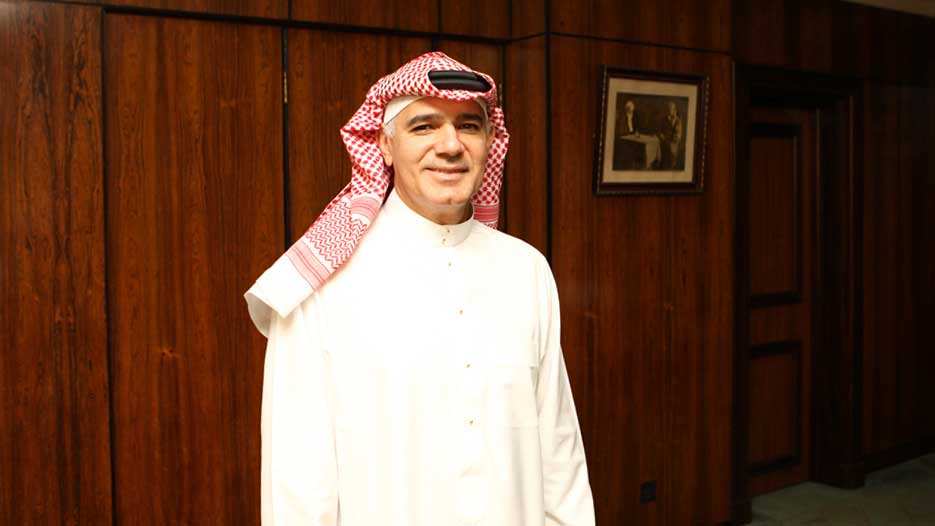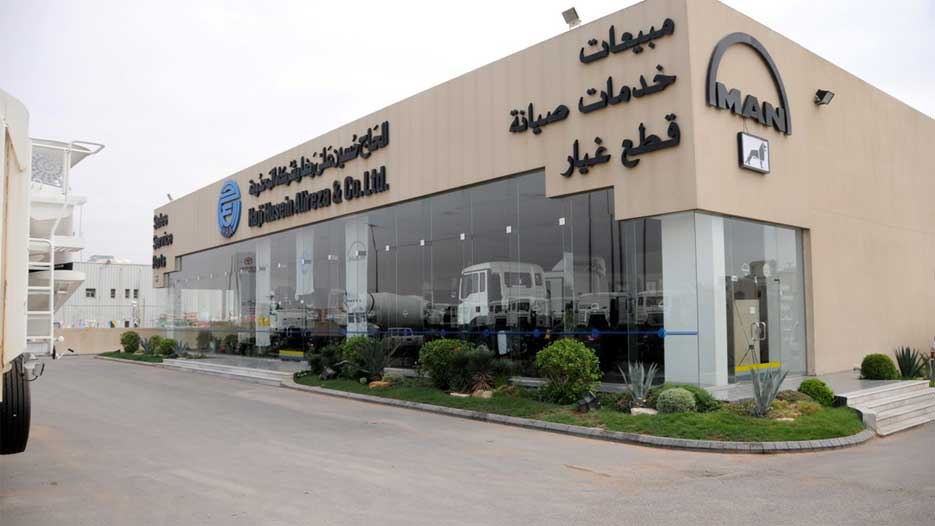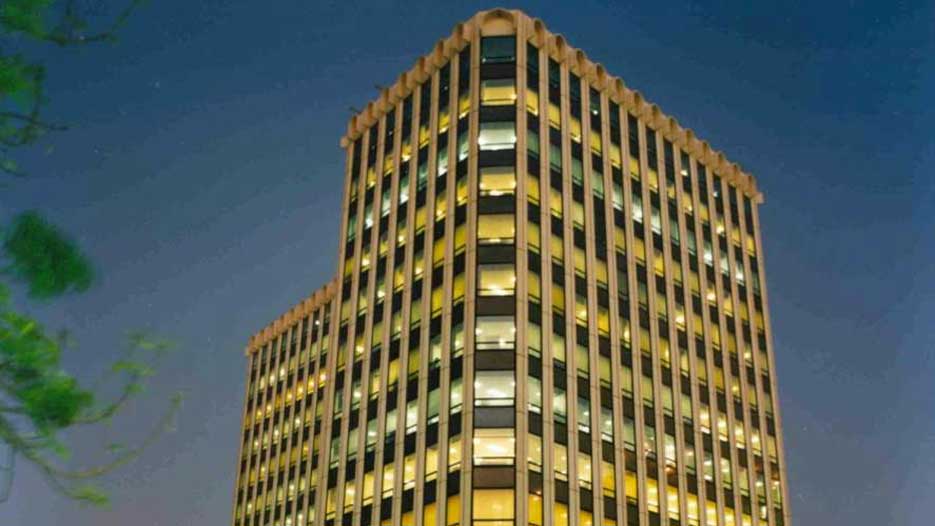Doing Business in Saudi Arabia: Security is Number One Challenge
What is interesting about doing business in Saudi Arabia is the continuous growth pattern in the economy; that’s what makes it interesting, not only in the short-term, but in the long-term. Saudi Arabia’s economic growth is driven by its demographics: we are a young and growing population, a big and spacious country (around the size of Western Europe), and relatively undeveloped in many infrastructure areas.
Interview with Ali H. Alireza, Managing Director of Haji Husein Alireza

You’ve always been a pioneer, and doing business is natural do you, but what do you think are challenges or opportunities nowadays in Saudi Arabia?
What is interesting about doing business in Saudi Arabia is the continuous growth pattern in the economy; that’s what makes it interesting, not only in the short-term, but in the long-term. Saudi Arabia’s economic growth is driven by its demographics: we are a young and growing population, a big and spacious country (around the size of Western Europe), and relatively undeveloped in many infrastructure areas. The needed investments are catered to this untapped and growing sector of the country, and presents very good business opportunities no matter which sector you’re in: municipal services, health, education, etc. Saudi Arabia’s wealth from oil reserves help finance these investments, so this is why any Saudi businessman is optimistic about the future and business prospects here.
The number one challenge is living in the Middle East; it is a turbulent region, so maintaining security in Saudi Arabia is not easy.
Saudi Arabia, like the other six GCC countries, has been known for its stability and security for many decades now, and that doesn’t come easy. We understand that there are investments and vigilance in our security that need to be made. I have to give credit to the Saudi government because they have been very careful and diplomatic in steering this country through many periods of turbulence in the Middle East. We are certainly living in one now, and I think that is probably the biggest challenge going into the future: the political security situation in the Middle East. However, you’ll find that business people here invest for the long-term, not the short-term, because we understand that these challenges are going to be with us for the long-term and cannot weight too much on our mind when investing. Our country is growing, both in terms of population and needs, regardless of the difficult environment that we live in.
You have gone through some rough periods in the past – with the turmoil in the oil markets in the 70s and Ford dealership – how do you survive and thrive throughout the years, decades, or centuries?
The secret key to success of any diversified company or family company is to build a proper business infrastructure. Businesses or the needs of the market may change, but your ability to meet those needs, serve your customers, and grow your business must not change. We continually invest in our business; we have an excellent network.
This network in our business, cars, will serve any brand of car so we can take advantage of any opportunities because we have the infrastructure that we have built over many years. Our company was established in 1906, and there hasn’t been a single year when we haven’t invested in our infrastructure or presence in Saudi Arabia. That gives us the resources and ability to face and adapt to difficult times and challenges. People in family-run companies don’t look at these companies as their own, but as an inheritance from our ancestors, and have to invest in it before handing it over to family members who come after us.
Could the increase globalization and liberalization of key sectors in Saudi Arabia pose a challenge to the family businesses that act as brokers between foreigners and locals?
Yes, that could be a challenge, but it is also an opportunity. As you mentioned, the Saudi economy is changing and opening up more, while allowing better access to our economy for foreign investors and customers. That also presents an opportunity for local companies here, because competition is increasing, which started a few years ago when Saudi Arabia joined the WTO. The strongest presence in Saudi Arabia is local companies, so as the government opens up more avenues for foreign investment and privatizes sectors in Saudi Arabia, these are opportunities for locals to invest and enter these sectors. Local companies are best suited to handle those opportunities than foreign investors; foreign direct investment is important part of economic growth in any country, and we welcome the opportunity to work with more foreign investors because of the benefit for local businesses.

Talking about family businesses, how is the family business in Saudi Arabia different from other countries? Did you learn any knowledge from your ancestors or from your own experiences?
I think that the biggest asset that a family business has is not the physical asset, but the history, reputation, and credibility. These are all things that we learned from our ancestors, and we have a saying that ‘It takes years to build a reputation, but only a few moments to destroy it.’ We have to safeguard this because clients expect trustworthiness, dependability, and a relationship from us. When new generations come, this is what we teach them. The second asset is the longevity of the family company: planning for the future and thinking [of new opportunities] for the long-term, not on a quarter-by-quarter-basis. Many people look at publicly traded companies and think that this is very short-term thinking.
The ability to act long-term and build this reputation with stakeholders is the biggest advantage of a family company. I think this is the same for family companies all over the world: they have the same attributes and family dynamic and face the same challenges and issues. There is a wealth of information on the evolution of family companies and how best to manage them, and we try to learn from that.
In the past, Saudi Arabia has seen some of the big families come and go. Is there something to be learned from the downfall of some of the families?
I wouldn’t call it ‘downfall,’ but there are certainly challenges that some families have faced. These are phases in a family’s history that they have to go through, and when they overcome these challenges, these same names will still be big names in the future. The important thing is for a family to stick together, and face and get over these challenges, just like they did in the past and how they built their business.
Every time a family business, or any business, faces and recovers from an issue only adds to that company’s history and wealth of knowledge. The family names that you mentioned are still strong business names in Saudi Arabia, they’ve had some hills to climb, but hopefully they will get over them.
Regarding your strategy and business development, what are you currently working on? Where would you like to cut or expand, especially in this environment of lower oil prices and regional instability?
We are in a business that mostly caters to consumers – we work on government projects as well, but most of our business tends to be driven by a growing population. We see that the need for investment in Saudi Arabia is going to continue, [although] it may slow down depending on the fluctuation in oil revenue, but the curve keeps turning upward. We have to adjust in the changing economic and business environments, either slow down and tighten out belts, or consolidate and expand when we have to.
Our long-term plan is to keep investing and growing in Saudi Arabia, because it’s so big in terms of people and area; we have not reached the stage in our business in thinking we are a ‘mature business’ and have covered all the areas that we need to cover. When we invest in a new area and establish ourselves, we see the payback and return of investment – but the rate of return depends on the economic environment at the time.
We are quite happy with the business we are doing here; we’ve had tougher years in the past, where the price of oil was lower than $10 a barrel, so we’re not too worried about the future – we manage the prices of oil as they come.
Are you fully satisfied with your growth rate, profitability, and key financial ratios, or would you like to see something different?
I can’t say I’m fully satisfied because then my shareholders would say, ‘Wait, does that mean you’re not working harder?’ I’m satisfied with our growth rate, we are growing at a good rate, and the return on our investment and equity is reasonable. The important thing that all businesspeople will tell you is, ‘You can’t control the size of the market, but you can influence your market share.’ As long as we keep working hard and increase our market share in the sectors that we are working in, then we are doing well and in a good position. The two main areas that I operate in are cars and IT, and I can see that our market share is strong, so we are satisfied in that sense. The future looks bright if we continue on this trajectory.

You want to grow the market share, but growing market shares means somebody else loses market shares. How do you manage the politics with other families?
In Saudi Arabia, you’ll find that you are always competing against your good friends or families, so you consider them as colleagues. In the business realm, you do your best, look at your market share, target areas for growth, and go after that. Of course, when somebody gains markets shares somebody else loses them, but that’s how business goes. I think there is plenty of business for everyone in a growing business environment: if the market is growing then you’re increasing market share without anybody losing shares.
I’m happy with our competitive position, and I wish I could say that our market share would grow forever, but of course there are certain parameters within which you can work and I think we are working well in that.
Regarding your market shares, are you growing more than the economy?
Definitely. When your market share grows, that means that your sales are growing at a faster rate than the market. We have done that through hard work, but also with some good fortune: Mazda is one of our flagship brands, and has come out with very nice models and revamped their line-up, and then we had a strong depreciation and Japanese products were more competitive price-wise. In the truck business with MAN, we’ve done extremely well in the past few years because Saudi Arabia has been on a building boom and have done very good business in construction equipment and transportation. Saudi Arabia is a big country and has a big need for buses or trucks to distribute goods, and a lot of our investment has been taking place in those sectors over the last couple of years. Of course we’ve done very well with MAN trucks and Mazda brands, as they are leaders in their sectors.
Looking into the future, where do you see the future of the group? Do you think it will still be in automotive or something new?
We have a diverse business right now, as I mentioned, the automotive is our biggest business and what we are known for, but we are also in finance and IT. We have a company called NATCOM, which is a total solutions provider and important partner for HP, and was awarded HP’s partner of the year for 2014.
The IT business is a growing business as well, and we’re in real estate. By default, our business requires a lot of real estate, so we have a large real estate portfolio – both residential and commercial – and we are always looking at areas for expansion and opportunities in the future.
What is your growth rate?
Between 2012 and 2014, our sales have grown by 30%, which is a really healthy rate.
We benefitted from the problems of Europe and the euro going down, we gained a market share with European products; the same thing happened in Japan with the Japanese yen suffering.
What are the problems that Saudi Arabia will face in the future? What policies should the government focus on?
I think policy-makers ought to focus on the business environment and make it easier to start a business in Saudi Arabia. We have many entrepreneurs in Saudi Arabia, and many opportunities for SMEs to grow and flourish here, but we need regulators to create a business environment where the creation and startup of SMEs is encouraged and helped by the government.
The government has traditionally been a big employer in the public sector of Saudi jobseekers, but this cannot continue forever because the public sector cannot keep growing. In the future, the task of providing employment and jobs for Saudis will fall more on the private sectors’ shoulders, so they need support from the government to grow economic opportunities and businesses.
We need a lot of encouragement for businesses, and business regulations should not over regulate that could stifle economic growth. The opportunities and the needs are there, but what we need to do is encourage the creation and growth of businesses, and cut the red tape to see the entrepreneurial spirit of Saudi businessmen flourish.